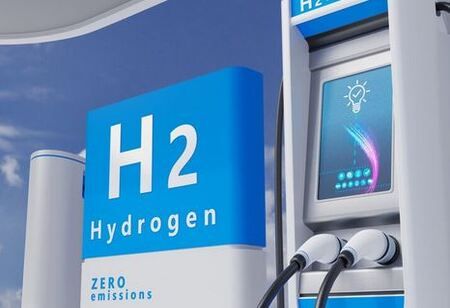
India's Hydrogen Demand to Rise to 8.8 MTPA by 2032


A report published by the India Energy Storage Alliance (IESA) projects that by 2032, India's demand for hydrogen will increase to 8.8 million tons annually at a compound annual growth rate of three percent.
Despite announcements of green hydrogen projects with a capacity of over 9 MTPA, few in India have reached the Final Investment Decision (FID) or obtained long-term offtake agreements from domestic or international markets, according to a research released on the opening day of India Energy Storage Week.
According to the baseline scenario, electrolytic c bio-H2 (bio hydrogen) production may fulfill roughly 31 percent of domestic demand in 2032 if 30 percent of the announced green hydrogen (GH2) capacity is put into service within 10 years.
The research also noted that four states—Odisha (38 percent), Gujarat (26 percent), Karnataka (12 percent), and Andhra Pradesh (6 percent)—account for 82 percent of the 9.2 million tonne per annum (MTPA) GH2 project announcements.
Also Read: Keep a Tab on These Evolving Trends in the Hospitality Industry in 2023
Approximately 72 percent of the projects that have been announced aim to employ GH2 for the manufacturing of ammonia, while 20 percent have not disclosed any end-use applications.
According to Vinayak Walimbe, Managing Director of Customized Energy Solutions (CES), there are still a number of obstacles to overcome in order to meet the pressing issue of decarbonization, even with the numerous legislative interventions and government measures to support the green hydrogen mission.
Also Read: Indian Startups Inciting a New Wave of Space Revolution in the Country
Due to storage and shipping costs, the landed cost of hydrogen is significantly higher for customers who purchase it, accounting for around six percent of the entire hydrogen market.
Furthermore, renewable energy offsets for commercial and industrial clients are sometimes restricted by open-access power laws, which may result in a decrease in electrolyzer capacity usage.
According to the paper, the base case's anticipated Levelized Cost of Hydrogen (LCOH) is two to four times greater than the cost of producing hydrogen derived from fossil fuels.
"The estimate is 1.5 to 2.5 times higher in a very optimistic scenario, which is very close to the recent first price discovery of green hydrogen in India," the statement said.